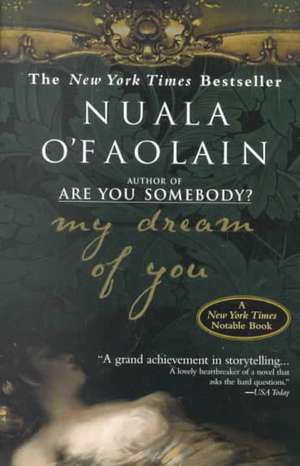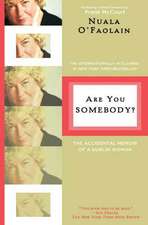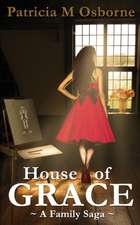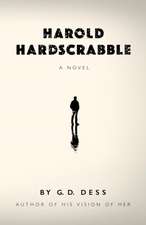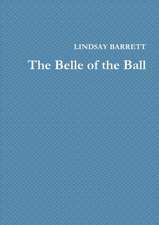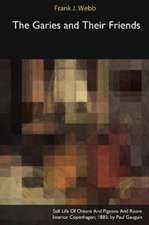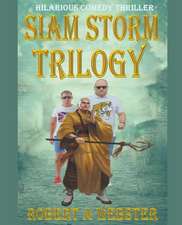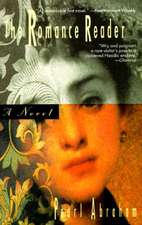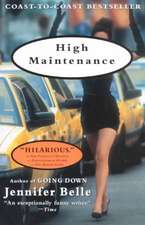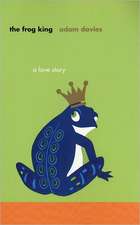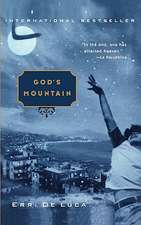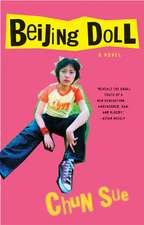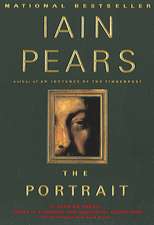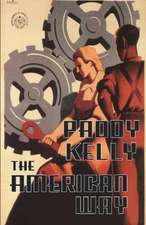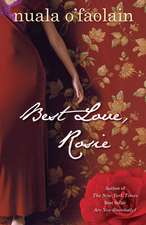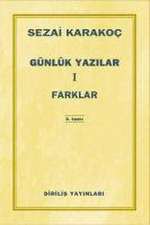My Dream of You
Autor Nuala O'Faolainen Limba Engleză Paperback – 31 ian 2002 – vârsta de la 18 ani
Vezi toate premiile Carte premiată
L.A. Times Book Prize (2001)
A New York Times notable book and bestseller, this debut novel from Irish Times columnist Nuala O'Faolain takes on life and love with Dickensian flair and the striking intimacy that characterized her bestselling and acclaimed memoir, Are You Somebody?
Set in Ireland and spanning a century and a half, My Dream of You unfolds the compelling stories of two women and their quests for passion, connection, and fulfillment. A globetrotting Irish travel writer, Kathleen de Burca is used to living—and loving—on the run. On the brink of fifty, she decides to leave her job and rethink her life. Intrigued by a divorce case dating back to the days of the Potato Famine, she tries hand at writing about it. The case, called "The Talbot Affair," detailed the clandestine liaison between the wife of a British landlord and an Irish servant in Ireland in the 1850s. After a bitter thirty-year absence, Kathleen returns to Ireland, the land of her troubled childhood and turbulent heritage, in search of answers to her questions about desire and lasting love.
Set in Ireland and spanning a century and a half, My Dream of You unfolds the compelling stories of two women and their quests for passion, connection, and fulfillment. A globetrotting Irish travel writer, Kathleen de Burca is used to living—and loving—on the run. On the brink of fifty, she decides to leave her job and rethink her life. Intrigued by a divorce case dating back to the days of the Potato Famine, she tries hand at writing about it. The case, called "The Talbot Affair," detailed the clandestine liaison between the wife of a British landlord and an Irish servant in Ireland in the 1850s. After a bitter thirty-year absence, Kathleen returns to Ireland, the land of her troubled childhood and turbulent heritage, in search of answers to her questions about desire and lasting love.
Preț: 136.04 lei
Nou
Puncte Express: 204
Preț estimativ în valută:
26.04€ • 28.29$ • 21.89£
26.04€ • 28.29$ • 21.89£
Carte disponibilă
Livrare economică 31 martie-14 aprilie
Preluare comenzi: 021 569.72.76
Specificații
ISBN-13: 9781573229081
ISBN-10: 1573229083
Pagini: 544
Dimensiuni: 130 x 201 x 28 mm
Greutate: 0.54 kg
Editura: Riverhead Books
ISBN-10: 1573229083
Pagini: 544
Dimensiuni: 130 x 201 x 28 mm
Greutate: 0.54 kg
Editura: Riverhead Books
Recenzii
“A grand achievement in storytelling… A lovely heartbreaker of a novel that asks the hard questions.”—USA Today
“Ingeniously explores the consuming power of both passion and the past.”—Entertainment Weekly
“What a pleasure it is to be able to open a book and relax into the flow of a beautifully written narrative…With an ambling, intimate candor, O’Faolain tells Kathleen’s story, present and past…And always, of course, behind everything is Ireland itself—beautiful, maddening Ireland.”—Lynn Freed, Washington Post Book World
“A big, generous, essentially old-fashioned novel, taking its unhurried time to tell a story and create a central character, to have a cool, long look at history and romance…There is tenderness here, and humanity, and a persuasive account of what happens when a person allows the world to enter into her once more.”—Catherine Lockerbie, The New York Times Book Review
“O’Faolain is] a reader’s writer, with a flair for straightforward, Dickensian storytelling.”—Meghan O’Rourke, Vogue
“Full of brilliant writing and heartbreaking insight…Unlike all but the best writers, O’Faolain isn’t afraid to write about a character as smart and complicated as she is.”—Malcolm Jones, Newsweek
“A smart and crisply written book, tinged with sadness…Kathleen’s journey back to one of Ireland’s humbler backwaters after a fashionable life as a near-English traveling journalist is fraught with emotion and politics. Indeed, one of the achievements of this lovely, haunting, and intelligent novel is demonstrating how tightly these elements are linked in the modern Irish – not only in the manner that makes international news, but at the levels that give color and shape to an individual’s everyday life.”—Vince Passaro, Elle
“What keeps you engrossed is the fact that the novel interweaves the contemporary bits…with an irresistible mystery…I can’t remember the last time I read a novel that so eloquently describes the erotic dilemma of middle age—the way that hunger for sexual and emotional satisfaction, unabated by time, intersects with a shocked recognition that the body itself changes, or even fails…It is [O’Faolain’s] journalistic eye for detail that etches Kathleen’s dilemma into your memory.”—Daniel Mendelsohn, New York
“Ingeniously explores the consuming power of both passion and the past.”—Entertainment Weekly
“What a pleasure it is to be able to open a book and relax into the flow of a beautifully written narrative…With an ambling, intimate candor, O’Faolain tells Kathleen’s story, present and past…And always, of course, behind everything is Ireland itself—beautiful, maddening Ireland.”—Lynn Freed, Washington Post Book World
“A big, generous, essentially old-fashioned novel, taking its unhurried time to tell a story and create a central character, to have a cool, long look at history and romance…There is tenderness here, and humanity, and a persuasive account of what happens when a person allows the world to enter into her once more.”—Catherine Lockerbie, The New York Times Book Review
“O’Faolain is] a reader’s writer, with a flair for straightforward, Dickensian storytelling.”—Meghan O’Rourke, Vogue
“Full of brilliant writing and heartbreaking insight…Unlike all but the best writers, O’Faolain isn’t afraid to write about a character as smart and complicated as she is.”—Malcolm Jones, Newsweek
“A smart and crisply written book, tinged with sadness…Kathleen’s journey back to one of Ireland’s humbler backwaters after a fashionable life as a near-English traveling journalist is fraught with emotion and politics. Indeed, one of the achievements of this lovely, haunting, and intelligent novel is demonstrating how tightly these elements are linked in the modern Irish – not only in the manner that makes international news, but at the levels that give color and shape to an individual’s everyday life.”—Vince Passaro, Elle
“What keeps you engrossed is the fact that the novel interweaves the contemporary bits…with an irresistible mystery…I can’t remember the last time I read a novel that so eloquently describes the erotic dilemma of middle age—the way that hunger for sexual and emotional satisfaction, unabated by time, intersects with a shocked recognition that the body itself changes, or even fails…It is [O’Faolain’s] journalistic eye for detail that etches Kathleen’s dilemma into your memory.”—Daniel Mendelsohn, New York
Notă biografică
Nuala O'Faolainis a columnist withThe Irish Times and the author of Are You Somebody? The Accidental Memoir of a Dublin Woman. She lives in Dublin and County Clare. My Dream of You is her first novel.
Extras
1.
By the time I was middle-aged I was well defended against crisis, if it came from outside. I had kept my life even and dry for a long time. I'd been the tenant of a dim basement, half-buried at he back of the Euston Road, for more than twenty years. I didn't like London particularly, except for the TravelWrite office, but I didn't see much of it. Jimmy and I, who were the main writers for the travel section of the NewsWrite syndicate, were on the move all the time. We were never what you'd call explorers; we never went anywhere near war or hunger or even discomfort. And we wrote about every place we went to in a cheerful way: that was the house rule. But we had a good boss. Even if it was the fifth "Paris in Springtime" or the third "Sri Lanka: Isle of Spices," Alex wouldn't let us get away with tired writing. Sometimes Jimmy accused him of foolish perfectionism, because every TravelWrite piece was bought immediately anyway. But having to please Alex was good for us. And then, people do read travel material in a cheerful frame of mind, imagining themselves at leisure and the world at its best. It's an intrinsically optimistic thing, travel. Partly because of that, but mostly because Alex went on caring, I liked my work.
I even liked the basement, in a way, in the end. I don't suppose more than a handful of people ever visited it, in all the time I was there. Jimmy was my close friend and since he'd come to Travel-Write from America he'd lived twenty minutes away, in Soho, but we'd never been inside each other's places. It was understood that if one of us said they were going home, the other didn't ask any questions. Once, early on, he said he was going home, and I happened to see, from the top of the bus, that he had stopped a taxi and was in fact going in the opposite direction. After that, I deliberately didn't look around when we parted. Anyway, my silent rooms were never sweetened by the babble the two of us had perfected over the years. And for a long time, there hadn't been anyone there in the morning when I woke up. Sex was a hotel thing. I don't think I'd have liked to disturb the perfect nothingness of where I lived.
Then a time came when I began to lose control of the evenness and the dryness.
I was waiting for my bag in the arrivals hall at Harare airport when I fell into conversation with the businessman in the exquisite suit who was waiting beside me. Favorite airlines, we were chatting about.
Royal Thai executive class is first-rate, he said.
Ah, don't tell me you fall for all that I-am-your-dusky-handmaiden stuff, I laughed at him.
Those girls really know how to please, he went on earnestly, as if I hadn't spoken at all. And there was a porter with gnarled bare feet asleep on the baggage belt, and when it started with a jolt the poor old man fell off in front of us, and all the businessman did was step back in distaste and then take out a handkerchief and flick it across the glossy toe caps of his shoes as if they'd been polluted. But I accepted his offer of a lift into town, all the same. We were stopped for a moment at a traffic light beside a bar that was rocking with laughter and drumming.
They're very musical, the Africans, he said. Great sense of rhythm.
Just what are you doing, I asked myself, with Mr. Dull here?
I half-knew; no, quarter-knew. But if nothing more had happened I would never have given it a conscious thought.
Men can't allow themselves that vagueness. At his hotel he said, Would you like to come in for a drink? Or would you like to come up to the room while I freshen up? I've rather a good single malt in my bag.
I propped myself against the headrest of his big bed and sipped the Scotch and watched him deploy his neat things-his papers, his radio, his toiletries. When he came out of the bathroom with his shirt off and the top of his trousers open, I was perfectly ready to kiss and embrace. I was dead tired. I'd had a drink. I was completely alone in a foreign country. I was morethan willing to hand myself over to someone else.
But very soon I was frowning behind his corpse-white back.
If only I knew how to take charge of this myself, I thought. If I could be the real thing myself, I could bring him with me. . . .
I honestly don't know how any person could make as little of the living body as that man did. Even the best I could do hardly made him exclaim. But he seemed to be delighted with the two of us, afterwards. At least I thought he was. He invited me to have dinner with him the next night, and I accepted, though I didn't much want to struggle through hours of trying to make conversation. I was in a great humor when he saw me into a taxi.
It had been human contact, hadn't it? I was a generous woman, wasn't I, if I was nothing else? I hummed as I hung my clothes in the wardrobe of my mock-Tudor guesthouse, under huge jacaranda trees that in the streetlights looked as if their swathes of blossom were black. My favorite thing: a hotel bedroom in a new place.
The phone rang. It was Alex to say that he needed Zimbabwe wildlife copy within forty-eight hours.
I suppose you think that elephants and giraffes just walk around downtown Harare like people do in London? I shouted sarcastically down the phone. I suppose you think they have a game park in this guesthouse where I have just arrived. Then I hung up.
When the phone rang again I picked up, ready to do a deal about the deadline. But it was the businessman.
How are you, my little Irish kitten? he said. I am thinking of you.
Oh, really? I said, embarrassed. Kitten. I was forty-nine.
Unfortunately, he said, I must go out of town.
One hour after I'd been with him! He hadn't even waited till the next day.
And that's what I learned from him-that my heart was still ridiculously alive. I was sincerely hurt. What had I done wrong? I actually swallowed back tears.
And then, he continued, I must go directly back to my office.
There was nothing between the man and me-nothing, not even liking. But because of the memory of some wholeness, or the hope of some regeneration, I would have dropped whatever I'd planned, just to go back to scratching around on his bed.
I cannot go on like this, I said to myself. Tears!
I went on to the east a few days later to do a quick piece about a hot springs resort in the Philippines. I went straight to the famous waterfall, and though the humid, grayish air smelled like weeds rotting in mud and there were boys everywhere along the paths between the flowering trees, begging, or offering them-selves as guides, it was possible to see that this was a marvelous spot, with hummingbirds sipping from the green pools that trembled under each fall before silently overflowing and sliding down the smooth rock to the next terrace. It was going to be easy to put a positive spin on the place. I made notes and took photos of the birds for identification, and then I got a bus to Manila. It arrived in the sweltering heat and dust of the evening rush. My hotel was on the far side of a busy dual carriageway. I started across the road, and reached the road divider where there was a bit of a dust-covered low hedge. A small hand came out of the hedge. I bent down. Two dirty-faced girls of seven or eight had a box under the hedge with an infant sleeping in it.
Dollar! the girl said. Then she stood on the road divider with the traffic going past on both sides and lifted the skirt of her ragged frock and pushed her delicate pelvis in threadbare panties forward. I didn't know what she meant, and maybe she didn't, either.
What money I had in my pockets I gave her, and then, instead of checking in to the hotel I got a taxi to the airport, looking neither left nor right.
There are children living in the middle of the road, I said.
Yes, the driver said. The country people come to town and they live in the street.
There was silence. He flicked on a Petula Clark tape.
After he took my money, outside departures, he said, We don't need no fuckin' grief from some old bitch.
--from My Dream of You by Nuala O'Faolain, Copyright © February 2002, Riverhead Books, a division of Penguin Putnam, Inc., used by permission."
By the time I was middle-aged I was well defended against crisis, if it came from outside. I had kept my life even and dry for a long time. I'd been the tenant of a dim basement, half-buried at he back of the Euston Road, for more than twenty years. I didn't like London particularly, except for the TravelWrite office, but I didn't see much of it. Jimmy and I, who were the main writers for the travel section of the NewsWrite syndicate, were on the move all the time. We were never what you'd call explorers; we never went anywhere near war or hunger or even discomfort. And we wrote about every place we went to in a cheerful way: that was the house rule. But we had a good boss. Even if it was the fifth "Paris in Springtime" or the third "Sri Lanka: Isle of Spices," Alex wouldn't let us get away with tired writing. Sometimes Jimmy accused him of foolish perfectionism, because every TravelWrite piece was bought immediately anyway. But having to please Alex was good for us. And then, people do read travel material in a cheerful frame of mind, imagining themselves at leisure and the world at its best. It's an intrinsically optimistic thing, travel. Partly because of that, but mostly because Alex went on caring, I liked my work.
I even liked the basement, in a way, in the end. I don't suppose more than a handful of people ever visited it, in all the time I was there. Jimmy was my close friend and since he'd come to Travel-Write from America he'd lived twenty minutes away, in Soho, but we'd never been inside each other's places. It was understood that if one of us said they were going home, the other didn't ask any questions. Once, early on, he said he was going home, and I happened to see, from the top of the bus, that he had stopped a taxi and was in fact going in the opposite direction. After that, I deliberately didn't look around when we parted. Anyway, my silent rooms were never sweetened by the babble the two of us had perfected over the years. And for a long time, there hadn't been anyone there in the morning when I woke up. Sex was a hotel thing. I don't think I'd have liked to disturb the perfect nothingness of where I lived.
Then a time came when I began to lose control of the evenness and the dryness.
I was waiting for my bag in the arrivals hall at Harare airport when I fell into conversation with the businessman in the exquisite suit who was waiting beside me. Favorite airlines, we were chatting about.
Royal Thai executive class is first-rate, he said.
Ah, don't tell me you fall for all that I-am-your-dusky-handmaiden stuff, I laughed at him.
Those girls really know how to please, he went on earnestly, as if I hadn't spoken at all. And there was a porter with gnarled bare feet asleep on the baggage belt, and when it started with a jolt the poor old man fell off in front of us, and all the businessman did was step back in distaste and then take out a handkerchief and flick it across the glossy toe caps of his shoes as if they'd been polluted. But I accepted his offer of a lift into town, all the same. We were stopped for a moment at a traffic light beside a bar that was rocking with laughter and drumming.
They're very musical, the Africans, he said. Great sense of rhythm.
Just what are you doing, I asked myself, with Mr. Dull here?
I half-knew; no, quarter-knew. But if nothing more had happened I would never have given it a conscious thought.
Men can't allow themselves that vagueness. At his hotel he said, Would you like to come in for a drink? Or would you like to come up to the room while I freshen up? I've rather a good single malt in my bag.
I propped myself against the headrest of his big bed and sipped the Scotch and watched him deploy his neat things-his papers, his radio, his toiletries. When he came out of the bathroom with his shirt off and the top of his trousers open, I was perfectly ready to kiss and embrace. I was dead tired. I'd had a drink. I was completely alone in a foreign country. I was morethan willing to hand myself over to someone else.
But very soon I was frowning behind his corpse-white back.
If only I knew how to take charge of this myself, I thought. If I could be the real thing myself, I could bring him with me. . . .
I honestly don't know how any person could make as little of the living body as that man did. Even the best I could do hardly made him exclaim. But he seemed to be delighted with the two of us, afterwards. At least I thought he was. He invited me to have dinner with him the next night, and I accepted, though I didn't much want to struggle through hours of trying to make conversation. I was in a great humor when he saw me into a taxi.
It had been human contact, hadn't it? I was a generous woman, wasn't I, if I was nothing else? I hummed as I hung my clothes in the wardrobe of my mock-Tudor guesthouse, under huge jacaranda trees that in the streetlights looked as if their swathes of blossom were black. My favorite thing: a hotel bedroom in a new place.
The phone rang. It was Alex to say that he needed Zimbabwe wildlife copy within forty-eight hours.
I suppose you think that elephants and giraffes just walk around downtown Harare like people do in London? I shouted sarcastically down the phone. I suppose you think they have a game park in this guesthouse where I have just arrived. Then I hung up.
When the phone rang again I picked up, ready to do a deal about the deadline. But it was the businessman.
How are you, my little Irish kitten? he said. I am thinking of you.
Oh, really? I said, embarrassed. Kitten. I was forty-nine.
Unfortunately, he said, I must go out of town.
One hour after I'd been with him! He hadn't even waited till the next day.
And that's what I learned from him-that my heart was still ridiculously alive. I was sincerely hurt. What had I done wrong? I actually swallowed back tears.
And then, he continued, I must go directly back to my office.
There was nothing between the man and me-nothing, not even liking. But because of the memory of some wholeness, or the hope of some regeneration, I would have dropped whatever I'd planned, just to go back to scratching around on his bed.
I cannot go on like this, I said to myself. Tears!
I went on to the east a few days later to do a quick piece about a hot springs resort in the Philippines. I went straight to the famous waterfall, and though the humid, grayish air smelled like weeds rotting in mud and there were boys everywhere along the paths between the flowering trees, begging, or offering them-selves as guides, it was possible to see that this was a marvelous spot, with hummingbirds sipping from the green pools that trembled under each fall before silently overflowing and sliding down the smooth rock to the next terrace. It was going to be easy to put a positive spin on the place. I made notes and took photos of the birds for identification, and then I got a bus to Manila. It arrived in the sweltering heat and dust of the evening rush. My hotel was on the far side of a busy dual carriageway. I started across the road, and reached the road divider where there was a bit of a dust-covered low hedge. A small hand came out of the hedge. I bent down. Two dirty-faced girls of seven or eight had a box under the hedge with an infant sleeping in it.
Dollar! the girl said. Then she stood on the road divider with the traffic going past on both sides and lifted the skirt of her ragged frock and pushed her delicate pelvis in threadbare panties forward. I didn't know what she meant, and maybe she didn't, either.
What money I had in my pockets I gave her, and then, instead of checking in to the hotel I got a taxi to the airport, looking neither left nor right.
There are children living in the middle of the road, I said.
Yes, the driver said. The country people come to town and they live in the street.
There was silence. He flicked on a Petula Clark tape.
After he took my money, outside departures, he said, We don't need no fuckin' grief from some old bitch.
--from My Dream of You by Nuala O'Faolain, Copyright © February 2002, Riverhead Books, a division of Penguin Putnam, Inc., used by permission."
Descriere
This compelling bestseller by the author of "Are You Somebody?" intertwines the stories of two women, an Irish travel writer living in present-day London, and a British landowner's wife during the 19th-century potato famine who was convicted of committing adultery with an Irish groom.
Premii
- L.A. Times Book Prize Nominee, 2001
